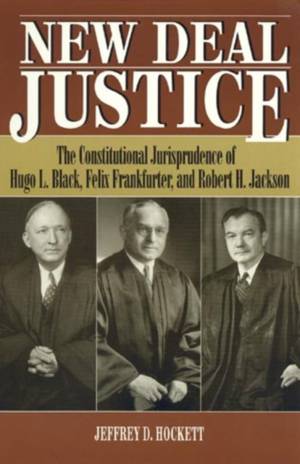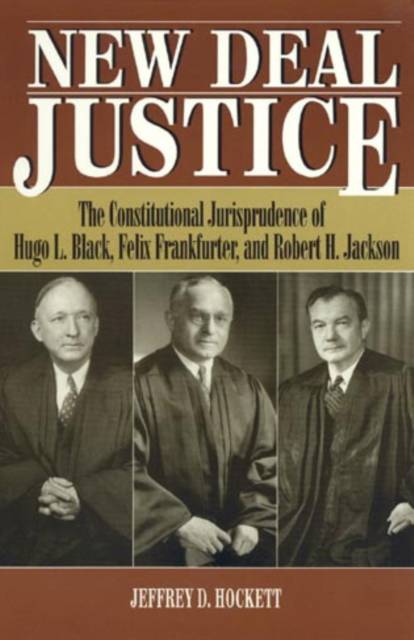
- Afhalen na 1 uur in een winkel met voorraad
- Gratis thuislevering in België vanaf € 30
- Ruim aanbod met 7 miljoen producten
- Afhalen na 1 uur in een winkel met voorraad
- Gratis thuislevering in België vanaf € 30
- Ruim aanbod met 7 miljoen producten
Zoeken
New Deal Justice
The Constitutional Jurisprudence of Hugo L. Black, Felix Frankfurter, and Robert H. Jackson
Jeffrey D. Hockett
€ 152,45
+ 304 punten
Omschrijving
This work illustrates the constitutional jurisprudence of President Franklin D. Roosevelt's most notable appointees to the United States Supreme Court. Drawing upon memoirs, writings, opinions and personal papers, the text examines the social/political theories of the three justices.
Specificaties
Betrokkenen
- Auteur(s):
- Uitgeverij:
Inhoud
- Aantal bladzijden:
- 336
- Reeks:
Eigenschappen
- Productcode (EAN):
- 9780847682102
- Verschijningsdatum:
- 4/08/1996
- Uitvoering:
- Hardcover
- Afmetingen:
- 152 mm x 238 mm
- Gewicht:
- 608 g

Alleen bij Standaard Boekhandel
+ 304 punten op je klantenkaart van Standaard Boekhandel
Beoordelingen
We publiceren alleen reviews die voldoen aan de voorwaarden voor reviews. Bekijk onze voorwaarden voor reviews.











